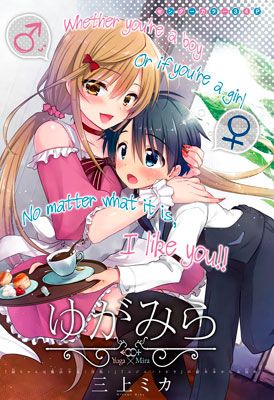
Meduso
by B.J. Irons
Venomous snakes for hair.
A glare that will cast people to stone.
Beheaded by the tragic Greek hero, Perseus.
It’s a safe assumption that we all know the basic facts about one of Greek Mythology’s most famous monsters, Medusa; the beautiful maiden cursed and turned into a Gorgon. Her tragic story and death at the hands of the hero, Perseus, has been told countless times for thousands of years.
But the thing with Greek Mythology is just that. They are myths. Narrated, fictional legends as old as time that have been passed down from generation to generation. Time has a way of changing the original tale. So, how can we be sure that the myths we think we know are the real story?
What if important aspects of these myths have been altered? What if the monster wasn’t really a monster at all? What if Medusa wasn’t actually Medusa? What if her name was Meduso? And what if she wasn’t a her, but a him? This is the tale of Meduso and his death at the hands of the hero Perseus’ sword. It is a tale of innocence, love, betrayal, and tragedy.
.
Read
Meduso on http://kissnovel.net
Martial Peak Reviews
B.J. Irons' Meduso is a bold reimagining of one of Greek mythology's most iconic figures, Medusa. In this inventive retelling, Irons flips the script by introducing us to Meduso, a male counterpart to the traditionally female Gorgon. This gender swap is not merely a gimmick but serves as a profound exploration of themes such as identity, perception, and the fluidity of myth itself.
The novel begins by challenging the reader's preconceived notions about mythological narratives. We are all familiar with the story of Medusa, the beautiful maiden cursed by Athena and ultimately slain by Perseus. However, Irons invites us to question the authenticity of these tales. What if the stories we have been told are not the truth? What if Medusa was not a monster, but a victim of circumstance and misinterpretation? By posing these questions, Irons sets the stage for a narrative that is as much about uncovering hidden truths as it is about retelling a classic myth.
One of the most compelling aspects of Meduso is its exploration of identity. By transforming Medusa into Meduso, Irons delves into the complexities of gender and how it shapes our understanding of self and others. Meduso's journey is not just a physical one but an emotional and psychological odyssey that challenges societal norms and expectations. This gender transformation allows Irons to explore themes of masculinity and vulnerability, offering a fresh perspective on a character traditionally portrayed as monstrous and otherworldly.
The character development in Meduso is both nuanced and profound. Meduso is portrayed as a deeply sympathetic character, one whose tragic fate is not a result of inherent monstrosity but rather the consequence of betrayal and misunderstanding. Irons paints a vivid portrait of a character caught between worlds, struggling to reconcile his identity with the expectations placed upon him by society and mythology. This internal conflict is mirrored in the external world, where Meduso's interactions with other characters reveal the complexities of love, loyalty, and betrayal.
Irons' writing is both evocative and lyrical, capturing the essence of Greek mythology while infusing it with a modern sensibility. The prose is rich with imagery, bringing to life the world of ancient Greece in all its beauty and brutality. The dialogue is sharp and insightful, revealing the inner workings of the characters' minds and hearts. Irons' ability to weave together the fantastical elements of mythology with the emotional depth of a character-driven narrative is truly remarkable.
One of the standout themes in Meduso is the idea of perception and how it shapes reality. Throughout the novel, Irons challenges the reader to question what they believe to be true. Is Meduso truly a monster, or is he a victim of a narrative that has been twisted and distorted over time? This theme is particularly relevant in today's world, where the lines between truth and fiction are often blurred. By examining the power of perception, Irons encourages the reader to look beyond the surface and seek out the deeper truths that lie beneath.
The novel's exploration of love and betrayal is both poignant and heart-wrenching. Meduso's relationships with other characters are complex and multifaceted, revealing the intricacies of human emotion and connection. Irons captures the pain of betrayal and the longing for acceptance with a sensitivity that resonates deeply with the reader. These themes are universal, transcending the boundaries of mythology and speaking to the human experience in a way that is both timeless and relevant.
In comparison to other retellings of Greek mythology, such as Madeline Miller's Circe or Natalie Haynes' A Thousand Ships, Meduso stands out for its innovative approach to gender and identity. While Miller and Haynes focus on giving voice to female characters traditionally sidelined in myth, Irons takes a different approach by reimagining a well-known female character as male. This gender swap adds a new layer of complexity to the narrative, challenging the reader to reconsider their understanding of myth and identity.
Overall, Meduso is a captivating and thought-provoking novel that breathes new life into a classic myth. B.J. Irons' masterful storytelling and insightful exploration of themes make this a must-read for fans of mythology and those seeking a fresh perspective on familiar tales. By questioning the narratives we have been told and offering an alternative view, Irons invites the reader to embark on a journey of discovery and reflection. Meduso is a testament to the power of storytelling and the enduring relevance of mythology in our modern world.
























Reviews 0
Post a Reviews: